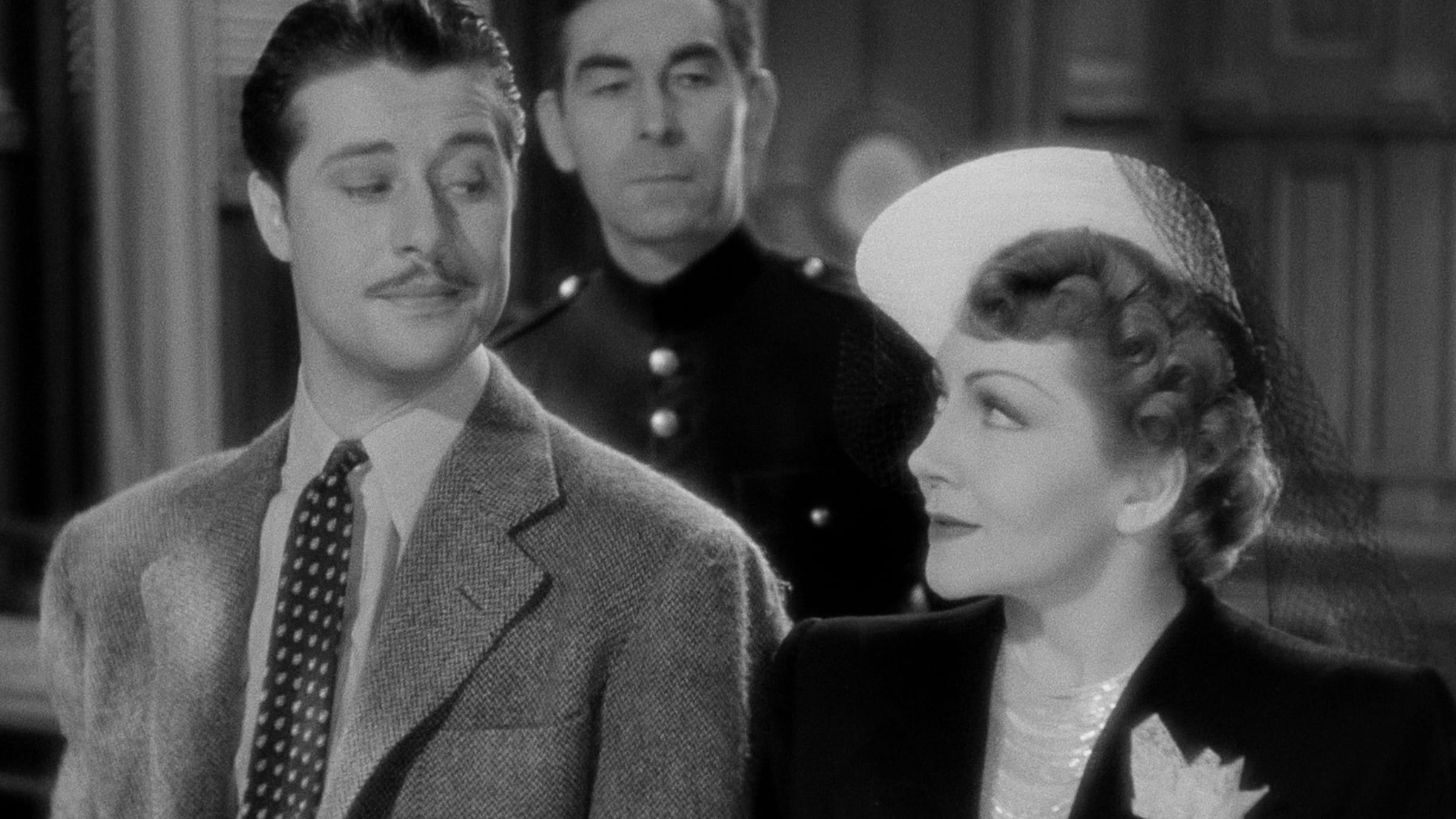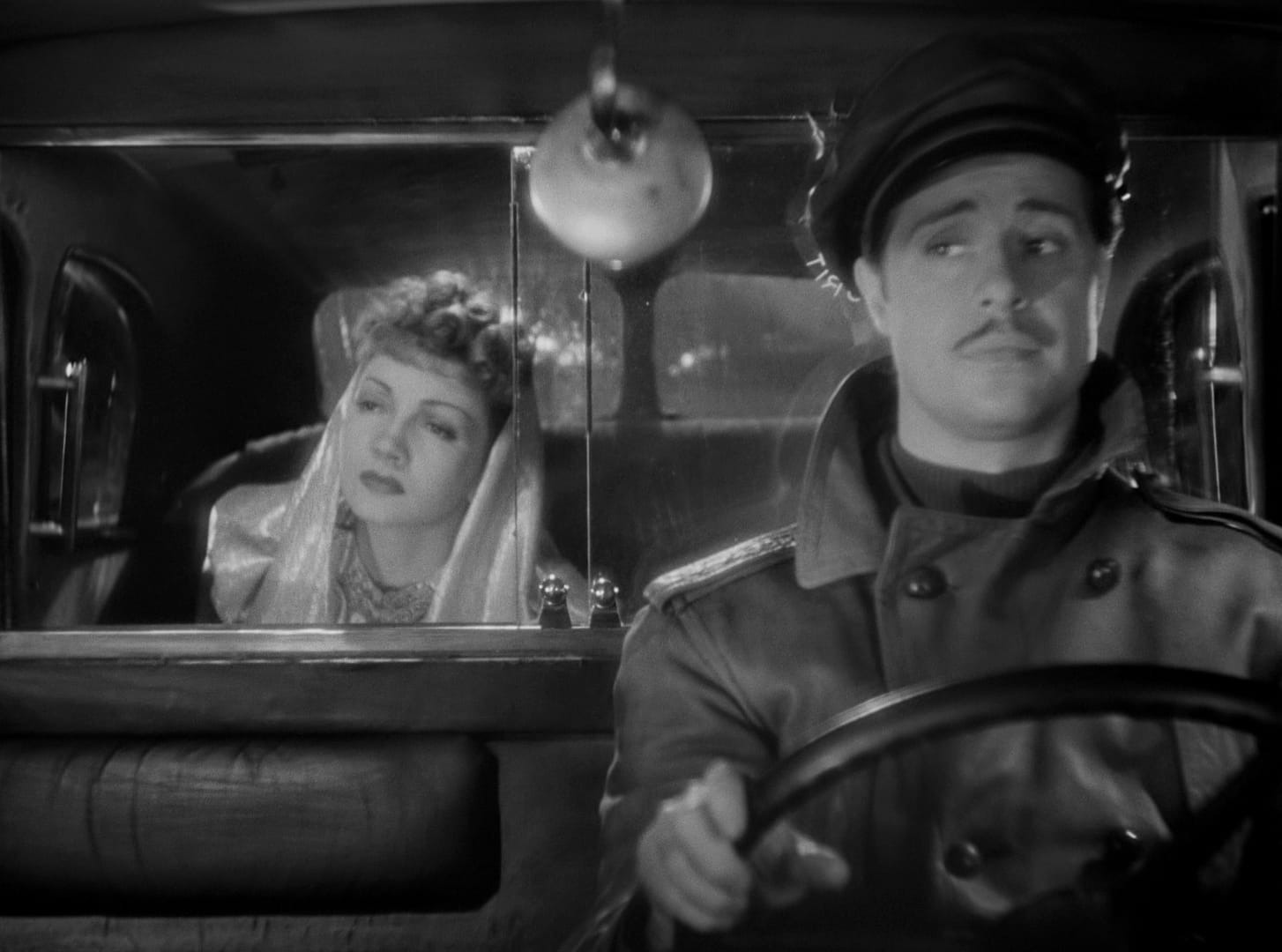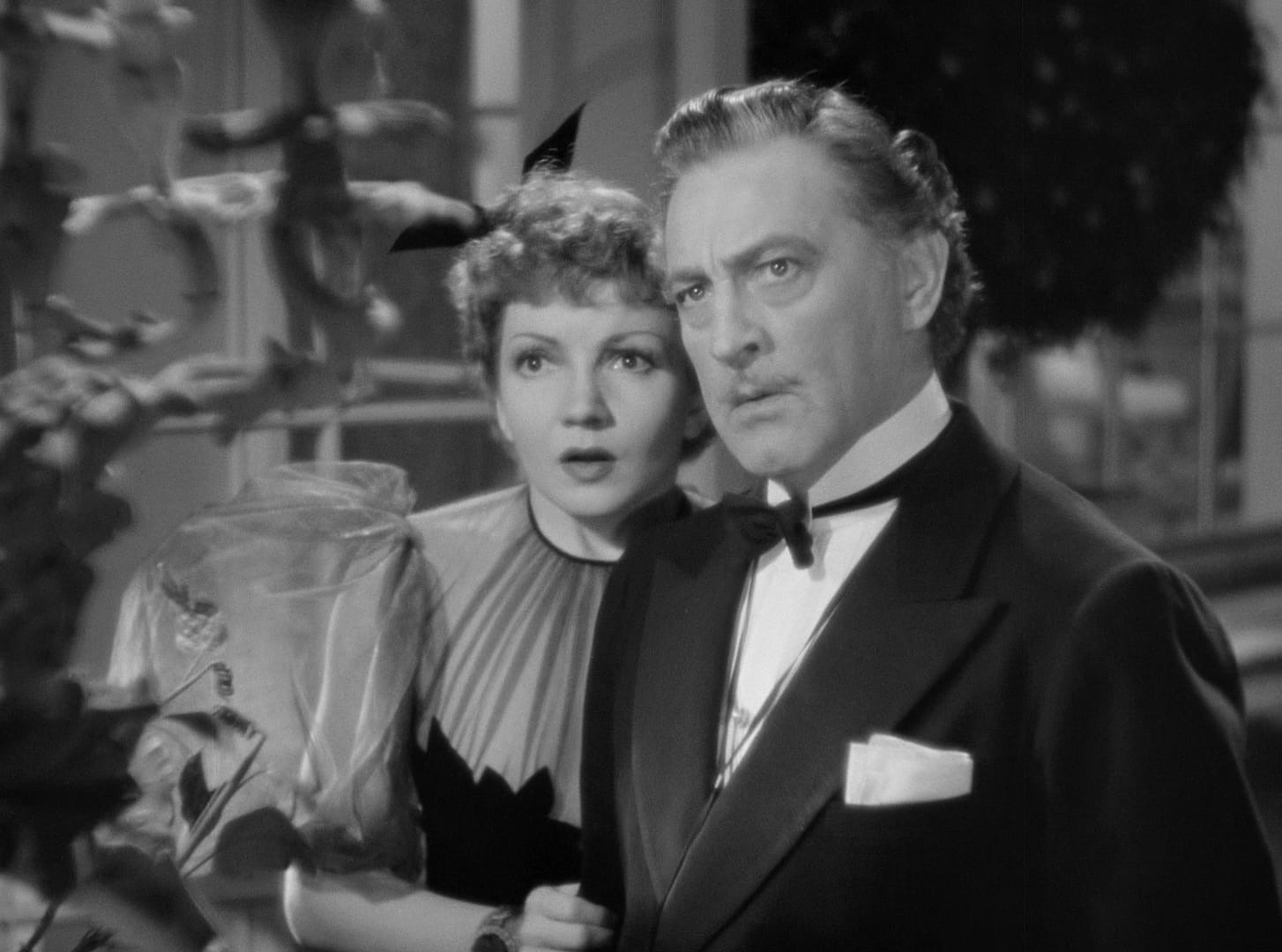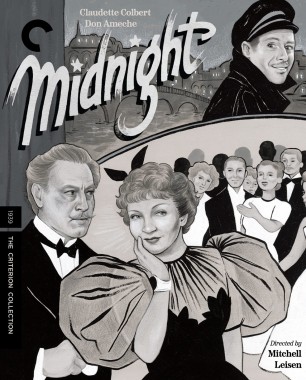Of course, the film has more expressive cast members than the newspaper. As Eve, Colbert alternately makes you overlook the character’s mercenary side and reminds you that Cinderella, too, was a gold digger. Maybe the heroine’s redeeming trait is that she trusts to luck, which obliges by throwing entertaining situations at her. We get rewarded for her misbehavior, so we can hardly begrudge it. Eve perfectly amalgamates her creators’ sensibilities: Wilder liked tough characters, while Brackett would stop them from getting too hard-boiled. And as for Leisen—a lifelong devotee of the analyst’s couch—he strove to impose his ideas about psychology on his characters, with Eve and Tibor benefiting from the rigorous way their contrasting worldviews are set up and expressed.
Leisen’s attitude to screenplays was, It’s not Shakespeare; if an actor struggled with a line, he would cut it, something Wilder particularly resented. Yet Midnight is actually quite Shakespearean. The original “Cinderella” isn’t really about imposture, but Twelfth Night is, and, like Midnight, Shakespeare’s play has fun with a character being set up to look crazy. Eve’s manipulativeness, barbed wit, and materialistic aims become more sympathetic when she’s chiseling, tricking, or insulting the feckless rich, rather than exploiting a good-natured cabbie. We acquire a rooting interest in her because she’s so smart and bold: She deserves wealth and luxury more than those who have it, so why shouldn’t she extract it from them? But she also deserves love, and the movie creates its restfully low-level dramatic tension by setting the two goals in opposition.
As in a good noir, everybody in a screwball comedy—from millionaires to waiters—is a philosopher, so act 1 has Eve and Tibor set out their respective views on life, which in a sense the film is supposed to weigh up and somehow reconcile. A measure of its brilliance is that it never appears to actually do so. Eve speaks in praise of luxury, though she’s never had it. Tibor is content with the decent living provided by his job. But their values are revealed to be less than airtight: even as Eve tries to distance herself from her plebeian suitor, she shamelessly mooches off him, and his self-satisfied, wise-guy manner is undercut by the fact that he is the one being taken for a ride. Afterward, Eve’s flight from Tibor proves that she feels the danger of falling for him, while his pursuit of her shows he can’t forget her.
Wilder and Brackett may have feuded with Leisen, but they shrewdly wrote things he’d enjoy filming, like the scene in a high-fashion hat shop here, and a Mexican wedding in their 1941 collaboration Hold Back the Dawn. It’s likely that Midnight’s one queer-coded character, Madame Flammarion’s friend Marcel (Rex O’Malley), was meant to appeal to Leisen too. Apart from Eve, he’s the most competent character in the ensemble, and his smarts make him the biggest threat to her scheming. That Leisen appreciated the character is shown by the fact that he appropriated him for a role played by Richard Haydn in No Time for Love (1943), a bizarre Freudian screwball about civil engineering.
Leisen’s sweet-talking of actors tended to result in happy sets, a tactic that may have come in handy when dealing with ex-lovers Astor and Barrymore. Astor began the film pregnant, and got more pregnant as the shoot went on, as one does, necessitating costume adjustments and trained furniture to occlude her forthcoming son. She found it sad to be around Barrymore, who was in an antisocial state: “He was vague and quiet and sat on the set barely talking to anyone,” she would later write.
Since Twentieth Century (1934), Barrymore had mostly been spoofing himself and the very idea of great acting, but in the few good roles he had left in his career he did so with such aplomb and apparent enjoyment that pity is deflected and, between laughs, you can only marvel at his skill. Throughout Midnight, he does appear somewhat pixilated, but if he’s drunk it’s on the screenplay’s language and the music of his own voice. Essentially, he occupies his own distinct movie, but fortunately it’s just as good as the one Leisen’s busy making, and the two visions mesh neatly. Playing against him, Colbert occasionally bites her lip, a mannerism she would fall back on to suggest nervous calculation and that may indicate worry about whether the scene is about to capsize at any instant as much as it does the character’s own inner turmoil.







